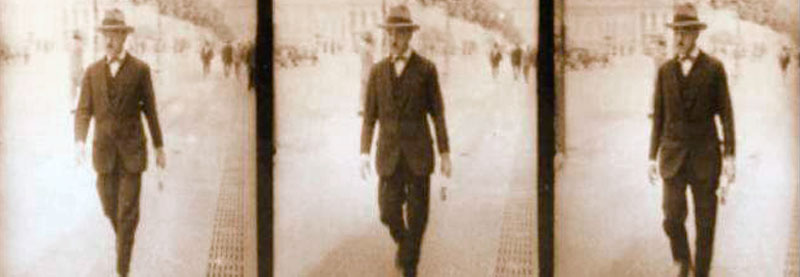| Database »» |
This digital edition of Fernando Pessoa’s texts deals with the set of writings of literary theory that are in the Portuguese author's Archive in the custody of the National Library of Portugal, with the reference E3. All facsimiles are accompanied by a paleographical transcription and a critical lesson. The numbering in square brackets that precedes each text corresponds to the cataloging number of the documents present in the Archive. Abbreviations are developed and lapses corrected.
To establish the text, we use the following symbols:
XXXXXX /xxxxxx\ – first version /alternative version\
| XXXX | – segment doubted by the author
† – indecipherable word
{…} – blank space left by author
|* XXXX | – conjectural reading
[…] – damaged material support
Just click on the title of each document to access the respective edition. The edition is available for download, by clicking on the icon in the “PDF” field. The citation rules for each document can be found in the “Citation rules”.
The post-doctoral work of Nuno Filipe Gonçalves Nunes Ribeiro, within which the present digital edition and its transcriptions are carried out, is financed by a grant from the FCT – Foundation for Science and Technology (SFRH/BPD/121514/ 2016), granted under the ESF program and developed at IELT – Institute for the Study of Literature and Tradition (NOVA FCSH).
We would like to thank Professor Fernando Cabral Martins for his guidance and advice regarding the methodology adopted in this digital edition, to Cláudia Souza for the encouragement and indications regarding the research of the texts from the Archive, to José Barbieri for his support regarding the informatic aspects of this edition and to Ricardo Marques for the dialogue and suggestions.
Nuno Ribeiro

